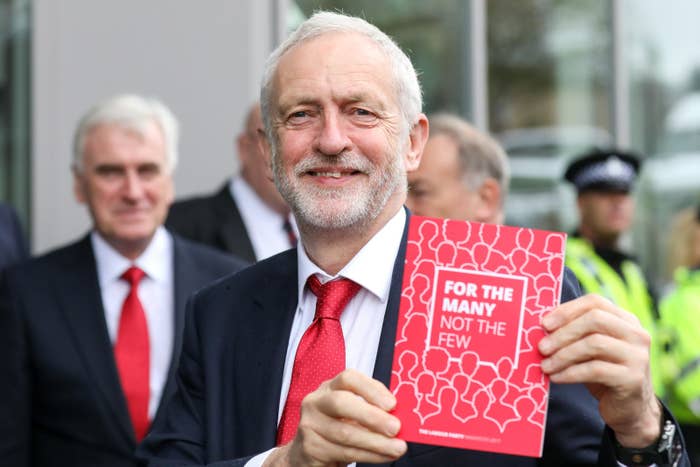
Jeremy Corbyn launched the Labour manifesto in Bradford on Tuesday with a pledge to end the Conservatives' freeze on welfare payments – only to row back on his position in later interviews.
The Labour leader received a rapturous welcome from party activists at the University of Bradford as he unveiled a unashamedly left-wing manifesto pledging to abolish tuition fees, increase taxes on businesses, and nationalise parts of the transport, electricity, and water industries.
He also appeared to pledge an end to the Conservatives' freeze on welfare payments, which are currently fixed at 2016 levels, meaning their value decreases as inflation rises.
"Increasing benefits is important and clearly we’re not going to freeze benefits, that is very clear," Corbyn said in a Q&A session following the party's leadership launch. "We are also looking at the perverse effects of the benefit cap on people and their housing accommodation, particularly in London and the centre of our big cities. You will be hearing more about that in the very near future."
However, soon afterwards he rowed back, with aides describing how the policy detail on reforming the benefits system was undeveloped due to the short time allowed between the election being called and the manifesto being published.
"The £2 billion we have set aside is to ensure that we deal with the worst effects of the way the cap operates," Corbyn told the BBC in an interview when asked why he wasn't fully reversing the freeze. "Bear in mind we have had two weeks to prepare all of these policy issues because of the way the election has been called. I accept the challenge."
In 2015 the Conservatives committed to cutting the welfare budget by £12 billion. The Labour manifesto does not pledge to reverse this and instead commits the much lower figure of £2 billion to cover the cost of reviewing the cuts to universal credit. A further £2 billion will go on restoring some other benefits.
By contrast, the cost of scrapping university tuition fees and restoring maintenance grants for students is estimated at £11.2 billion.
Most of the other policies he announced were largely unchanged for last week's leaked draft manifesto, although there were some changes. Income tax for those earning more than £80,000 a year would increase, and there would also be a special surcharge on companies who want to pay staff more than £330,000 a year.
Surrounded by supporters, some of whom booed the media, Corbyn said "people are under pressure, struggling to make ends meet" and that these policies would help.
Labour aides suggested that other reforms to other parts of the economy, plus a commitment to new council housing, would go some way towards helping individuals reliant on welfare payments, although the current plans would not completely reverse benefits cuts.

